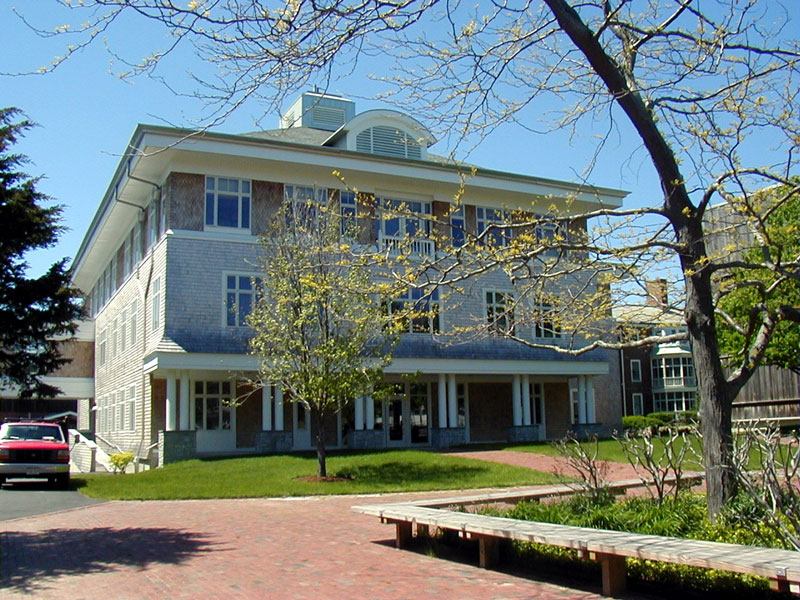MBL to Establish New Controlled Environmental Facilities with NSF Grant

Controlled environmental facilities, such as growth chambers, are important for elucidating the role of various conditions on ecosystem function. For example, short-term controlled laboratory experiments can provide data on a wide range of possible environmental conditions which, when coupled with field experiments, long-term observations, and models, contribute to our understanding of how ecosystems will respond to global change.
The MBL recently received a grant from the National Science Foundation’s “Field Station and Marine Labs” program for new controlled environment facilities. These facilities, which will be broadly used by MBL faculty, visiting scientists and students, will replace environmental chambers that are more than 15 years old and can no longer be maintained.
 The first floor of Starr Building, which houses the MBL Ecosystems Center, will be outfitted with new controlled environmental facilities.
The first floor of Starr Building, which houses the MBL Ecosystems Center, will be outfitted with new controlled environmental facilities.The grant, awarded to MBL Ecosystems Center Director Anne Giblin, will fund two new Conviron growth chambers equipped with state-of-the art temperature, CO2, humidity, and lighting systems. The chambers will also be equipped with a central control system allowing for remote monitoring of experiments.
The Starr Building room housing the new growth chambers will be greatly improved by moving three compressors outside, reducing noise in the room. For studies of environmental controls over microbial activities, the facility will also include a new Coy anaerobic chamber enabling preparation of anaerobic microbial cultures and experiments requiring strict anaerobic conditions.
These facilities will allow MBL to significantly expand its research on plant and soil processes, and on microbial interactions with plants and animals. The facilities will support research and education on a broad array of topics, including the effects of climate change and human land use on terrestrial and aquatic ecosystems, controls on greenhouse gas release from soils and sediments, studies on the evolution of photosynthesis, studies on the microbiome of plants and animals, and investigations into the metabolic capabilities of microbial communities and microbes living in extreme environments.
The NSF grant was written by Giblin in collaboration with MBL Ecosystems Center scientists Zoe Cardon, Joe Vallino, and Emil Ruff.